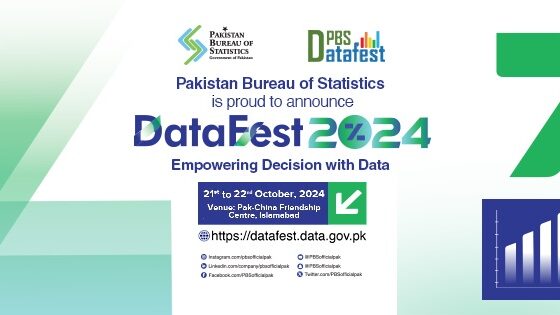Osman Ashghar Khan is the Country Manager of EMC for Pakistan and Afghanistan. He is also the Vice President and Member Executive Committee of the Pak American Business Council. Osman has been working with EMC over the years in audit, finance, operations and sales. Being associated with a financial industry, Osman explores different financial perspective of Pakistan aligned with Information Technology. What does it take for Pakistan to step up as a global market, let’s see it with Osman’s perspective.
Can you tell us a little about your professional background and career development?
I started as an internal auditor in Ernst & Young in US after graduating as a Certified Public Accountant from Brown University. My family asked me to pursue my career in Public Accountancy but I was more inclined towards travelling around the globe than setting myself in one place – and I realized it soon after I got a job. I worked at Data General which was acquired by EMC in 1999. As a result, I moved in to EMC and led the internal audit department. After one and a half year, I was asked to take the CFO role in one of their operations, which I refused. Later, however, I had to accept the proposal and I worked in Netherlands as Finance Director for three years till 2003 before I moved to a regional role in 2007. Soon after, I was assigned to setup EMC’s operations in Pakistan. So, my experience with EMC has been very diverse as I have worked in audit, finance, operations and now in sales for past 5 years.
Being associated with the financial industry, how do you compare the development of the local industry to other industries?
In terms of financial services, I think development in Pakistan has been amazing. In banking sector, just 10-15 years back, there was no focus on long term development growth and no system for Information Technology – it was just a legacy process. There been remarkable growth in overall market place ever since the banks have been privatized. The competition has put forth a huge space for banks to compete, build new systems, and proceed keeping themselves aligned with global standard as their focus. In next few years, I think there will be significant investing in banking sector as now we also have microfinance banks coming up, which will give out new systems and automated processing as well as accelerated and effective monitoring.
The way Pakistan is developing in ICT, do you think it will prove to be an ideal market in near future?
Pakistan is a fast growing country in numerous ways but there are things that still need attention – and these are the things playing a major role in the development of an ideal market. There is quite a contradictory behavior of local market in general. On one hand, there are advanced services in telecom, while on the other hand 3G services have still not been launched even though we were one of the first to launch 2G in Pakistan. Some of the banks do have first rate systems installed but there is a lot which still needs to be done. There is a mindset which feels no desire to innovate and do things differently to experiment and learn– and it is because they think the work is well done with whatever they have. But it’s a rapidly changing world and the market needs to keep pace with modern trends and keep learning.
How has EMC served and bettered the local business IT needs?
I think we have introduced efficiency to the market and introduced different things by brining competition to the market place. My competition in the past would be submitting very high prices with no value for basically gauging the customers, but I believe in last few years with us coming in, they had to be a lot more competitive. They had to explain their offerings to the banks, telecom companies, and individual customers. The competition has immensely grown and it has been realized that in the past, these companies have over charged. Besides, technology has evolved and the EMC is the market leader in the space.
Worldwide, I think we have 40-45% of the market place while we are driving focus towards the private crowds. We have been driving the space and here we can educate the customers and partners. We are driving change in the market place where we can help them rappel their growth over. If you observe, the market is emplacing roughly 100% a year. It is a very critical space and customers don’t know how to manage and use all this information. You have to tell them how they can become comfortable with this growth and what the long term future holds for them. By doing it, you give them the level of reassurance that they did not have before.
Since you are the Vice President and Member Executive Committee of the Pak American Business Council, we would like to know, how much collaboration and investment the association has yielded towards the development of the local enterprise market?
Pak American business council has been focused on building growth locally. We have 65 members and all are among fortune 500 Companies. Majority of our members are large companies, which includes major American brands. Substantial growth has been our prime focus. We are partnering with friends in US Embassy and US Consulate where we are planning initiatives for training CSR at the grass roots level. Our objective is to build sustainability in Pakistan whether we are doing this as individual companies or collaborating together to ensure a wider footprint with good sales. Additionally, we are funding schools and training programs for people providing them with internships and training programs with the help of our partners in US. There has been local investment for small and medium business in Pakistan as well. Overall, there are several productive initiatives – and on a very broad range!
While heading the sales team, what are the major issues that you come across in dealing with local customers? Do you face any lack of knowledge on their part or miscommunication etc?
It’s a long journey which you cannot do over night. You need to ensure that the customers get local training programs organized quarterly, or biannually, allowing customers to get their hands wet in order to understand your systems, because these same customers are people who in a year or two could be working somewhere else. If they have familiarity with your systems, they will eventually push you to other locations as well. We ensure that there is local and foreign training so customers get to know our systems comfortably – it allows them to understand what our technology can do. We also emphasize on our systems, basically from a value perspective which is very beneficial for any institution. Then, with a total cost of ownership aspect, we explain how we simplify processes for customers and automate them in such a way that saves their money on long term basis. We use low cooling which and require less power, which is indeed cost effective and helpful for our customers which believe they receive valued services from our end. We have gained over a 100 customers in the last few years and we have not lost any of them because we explain to them the work model to help them understand that our services are in their interest.
How would you compare the progress of the public sector with the private sector, in terms of technological innovations utilized in each?
Public sector grows in spurts while the growth in private sector is more consistent. With private sector, you have a long term roadmap future objectives. On the other hand, looking at the public sector, they will suddenly come to you with something new that they need to do, because some private sector company has done the same. So, there is a huge amount of work after which they will have nothing to do for at least a span of three years, claiming they have spent too much on it – and they will go back to it. Public sector has the advantage of having funds which they utilize. The problem with private sector is the limitation that they know they want to invest in, but how to work it out? So, both have advantages as well as disadvantages in terms of investment, while coping up with their limitations.
Do you see Pakistan among the top IT markets in the coming years?
I believe it depends mainly on education system in the country. Yes, there will be investments in Pakistan but the number of users is still quite low due to lack of education. We have the system; we have the processes; what we really need to build is a strong base. We are reaching that middle class threshold and therefore there are changing trends with online businesses. There is innovation but over all the number of people utilizing these resources is quite low. It has to be a long-term and sustainable growth for Pakistan to emerge as an IT market. Taking count of total people with a market perspective, there is no spending power. We are moving ahead in the right direction but it will take its time with a hundred and eighty million people. The question is whether it will be now or five years later? If I knew the answer to this question, I wouldn’t be sitting here.
Lastly, what, in your opinion, is needed to be done to improve the business scene locally and to bring more investment in the country?
Businesses grow when there are profitable prospects and security. The key is to provide security to people. And by security, I mean physical security as well as security and protection of assets. Secondly, we need to reduce the complexity of rules and regulations. If we look at Pakistan in the last few years, it has gone down in the world wide ranking of the competitive countries. We will have further investments coming if we get back to top 50. Otherwise, further investments can divert to countries other than Pakistan. If you take Africa as an example, you will see there is a remarkable growth rate in Africa because their business policies are very simple. So, we need easy opportunities to do business in Pakistan and use our resources properly. Institutions like IPDF if utilized properly can encourage business investments and create more space for business growth in Pakistan.








